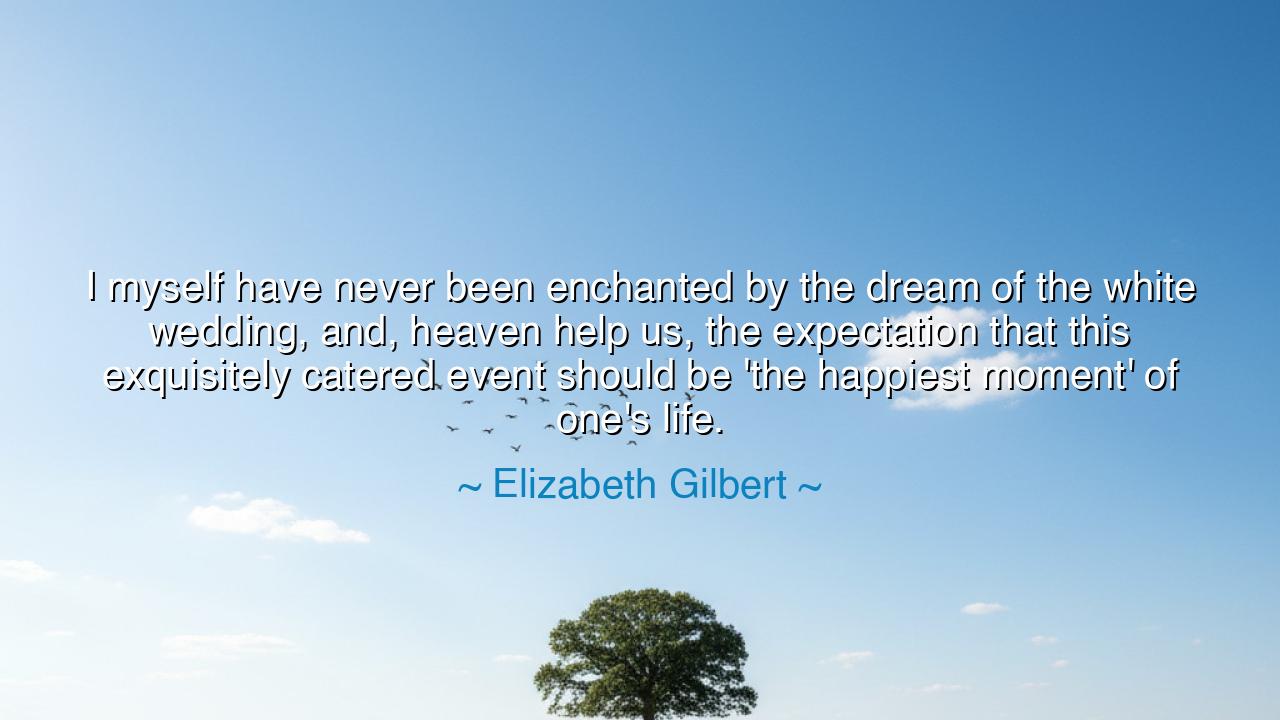
I myself have never been enchanted by the dream of the white
I myself have never been enchanted by the dream of the white wedding, and, heaven help us, the expectation that this exquisitely catered event should be 'the happiest moment' of one's life.






In the words of Elizabeth Gilbert, we hear a bold rejection of illusion: “I myself have never been enchanted by the dream of the white wedding, and, heaven help us, the expectation that this exquisitely catered event should be ‘the happiest moment’ of one's life.” These words strike at the heart of a cultural spell—that the white wedding, dressed in lace and spectacle, is the pinnacle of existence. Gilbert unmasks this dream, declaring it a burden disguised as joy, a stage upon which many play roles rather than live truth.
The white wedding, as tradition now defines it, is not ancient but modern, born in the age of Queen Victoria, whose own nuptials in white set a fashion that became myth. What began as symbolism of purity was exalted over centuries into an empire of expectation. Gilbert, unpersuaded by this charm, reminds us that such a day, no matter how carefully arranged, cannot bear the weight of being “the happiest moment” of life. For happiness is too vast, too deep, to be contained in a single banquet, however exquisitely catered.
History teaches us through the story of Marcus Aurelius, who in his Meditations warned against placing too much hope in fleeting ceremonies or outward forms. He counseled that true joy comes not from orchestrated moments, but from living daily in alignment with virtue and truth. Gilbert echoes this wisdom: the measure of love is not in flowers and gowns, but in the endurance of commitment after the feast has ended.
Her words also liberate us from tyranny—the tyranny of perfection. To imagine that a wedding must be flawless, and that it must eclipse all other joys, is to risk despair when reality intrudes. Tears, errors, disappointments—all are woven into life. By rejecting enchantment with the spectacle, Gilbert frees us to embrace the imperfect, to allow love itself—not its performance—to be the source of joy.
Thus, let this teaching be passed to future generations: do not surrender to the dream of the white wedding as though it were salvation. Life is too rich, and love too enduring, to be defined by a single day. Let weddings be celebrations, yes, but not prisons of expectation. Seek happiness not in one fleeting moment, but in the countless moments after, when love is tested, refined, and made eternal in the ordinary days that follow. For it is not the feast that sanctifies love, but love that sanctifies the feast.






AAdministratorAdministrator
Welcome, honored guests. Please leave a comment, we will respond soon